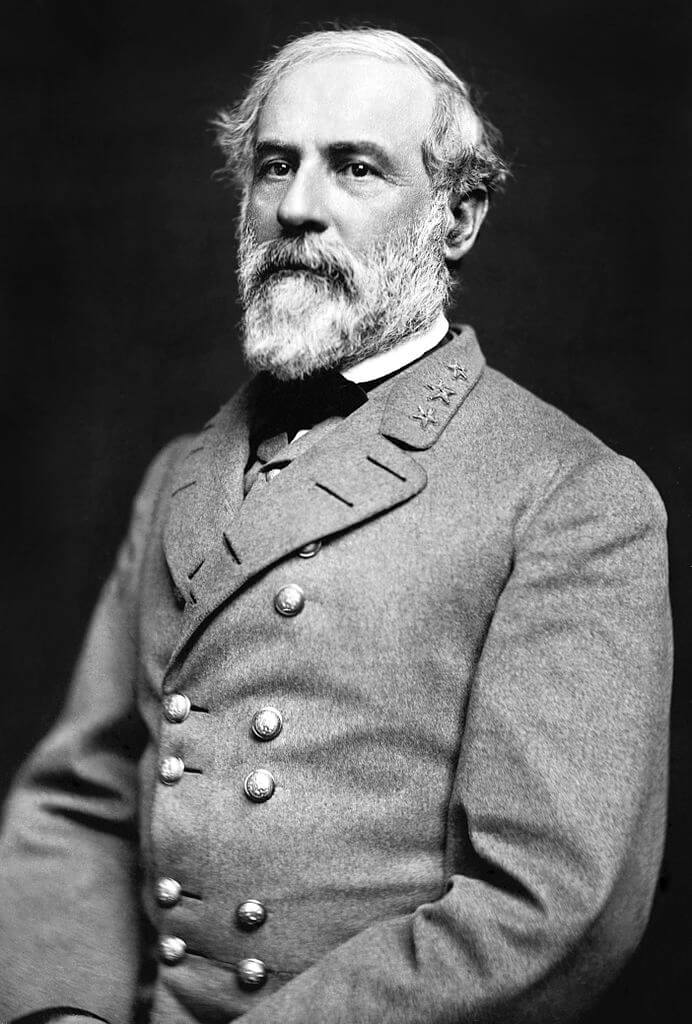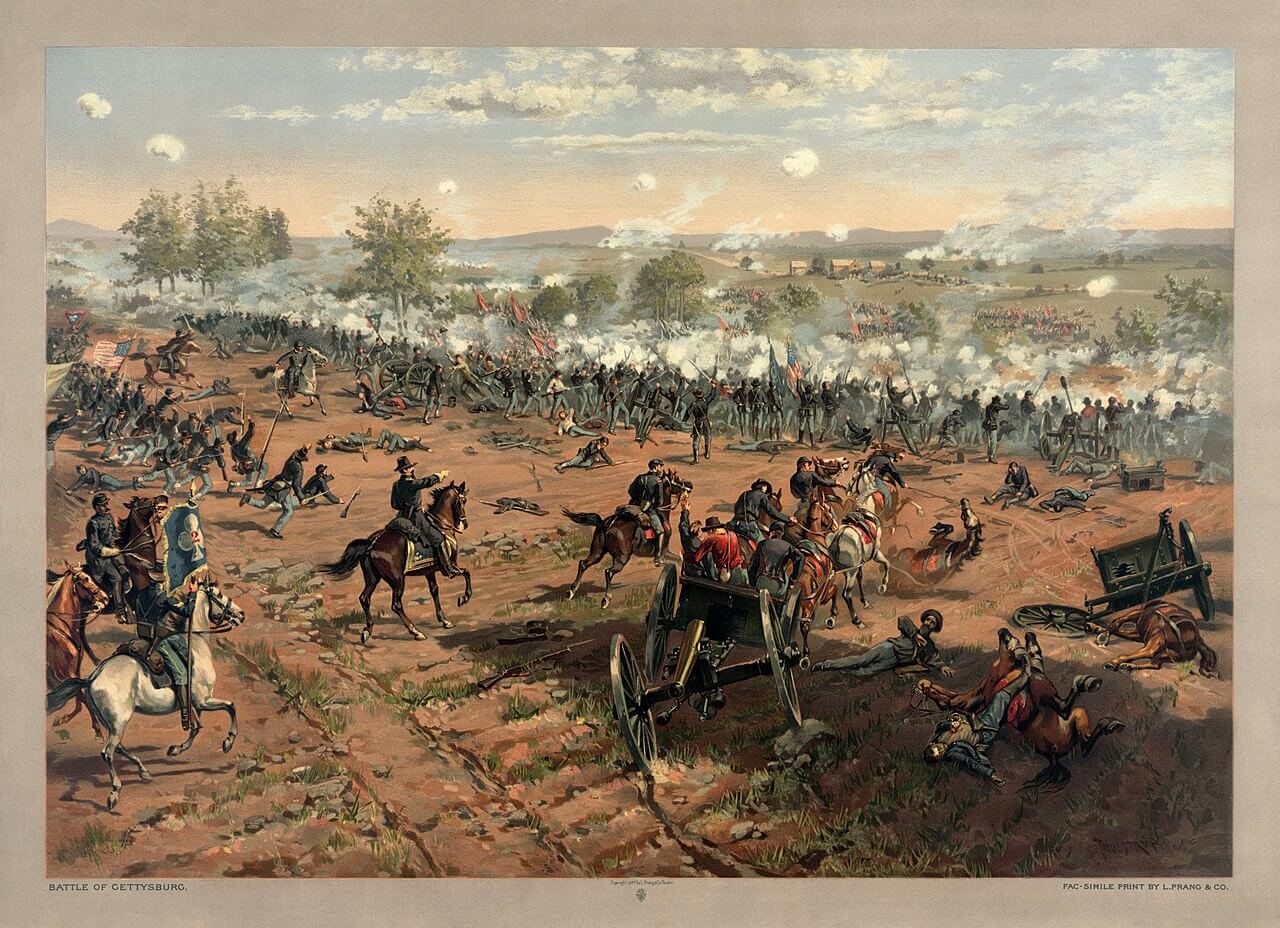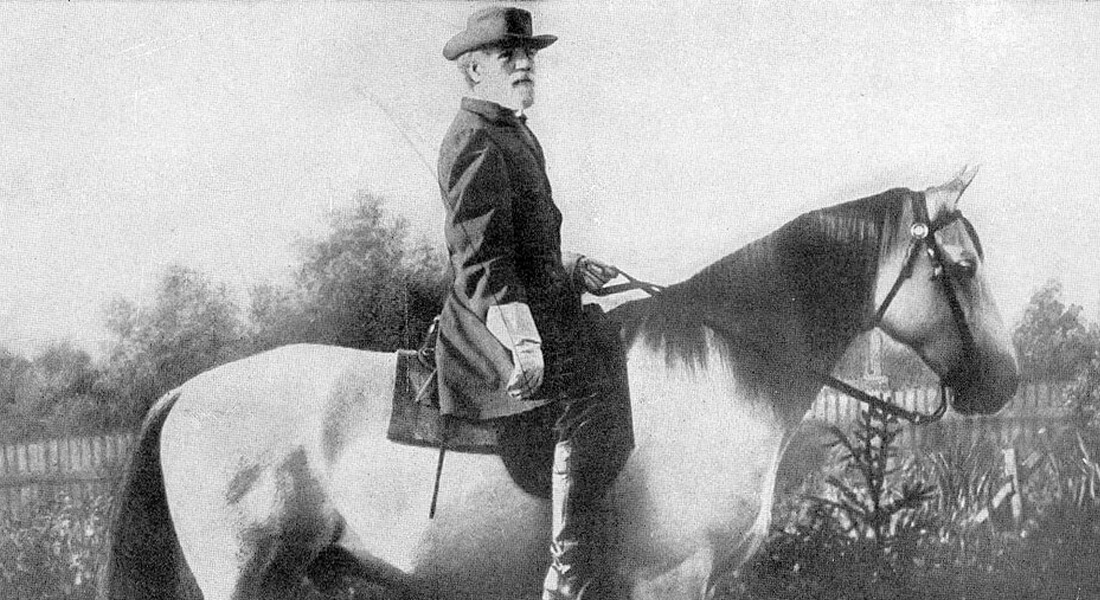Robert E. Lee was one of the most significant and enduring figures of the American Civil War era. Known for his unwavering sense of duty, tactical brilliance, and dignified leadership, he left an indelible mark on the nation’s history, forever personifying the nobility and tragedy of the Confederate cause.
The Early Years and Military Education
Born into the genteel upper class of Virginia society in 1807, Robert Edward Lee was imbued with an enduring sense of duty and honor that was to profoundly shape his future military career. His father, a Revolutionary War hero, instilled in young Lee the principles of discipline and service, though he was financially unstable and often absent.
Lee attended the United States Military Academy at West Point, where he distinguished himself by graduating second in his class in 1829 without a single demerit. He earned a commission as a second lieutenant in the Corps of Engineers, signifying the beginning of his military career.
Throughout the 1830s and 1840s, Lee excelled in his duties, working on harbor and river improvements, military fortifications, and coastal defenses, which underscored his growing expertise in strategic planning and infrastructure. His precision, competence, and commitment brought him recognition, leading to his promotion to captain in 1838.
In the Mexican-American War (1846-1848), Lee emerged as a key figure, playing a crucial role in the battles of Cerro Gordo, Contreras, Churubusco, and Chapultepec. His superiors, including General Winfield Scott, praised his courage and acumen, calling him the “very best soldier I ever saw in the field.” His remarkable service in Mexico earned him three brevets and saw his rank rise to Colonel.
Upon returning to America, Lee held various roles, including superintendent of West Point (1852-1855) and commander of the 2nd U.S. Cavalry in Texas (1857-1861). These posts highlighted his commitment to duty and discipline, traits that would later define his approach during the Civil War.
However, the eruption of the secession crisis in 1861 posed a profound personal and professional dilemma for Lee. Despite his allegiance to the Union, his deep-rooted loyalty to his native Virginia was unwavering. As the tensions between the North and South escalated, Lee found himself at a crossroads, torn between his dedication to the country he had served for over three decades and his loyalty to his home state. This internal conflict would ultimately lead to his decision to resign from the U.S. Army in April 1861, marking a significant turn in his military career and setting the stage for his prominent role in the American Civil War.
Hence, Robert E. Lee’s early life and military career until the Civil War can be characterized by his deep sense of duty, discipline, and loyalty, which were tested as he faced the difficult decisions of the tumultuous years leading up to the conflict.
Rising Through the Ranks
Upon his resignation from the U.S. Army, Robert E. Lee was swiftly appointed as a major general of Virginia’s forces in the Confederate Army, marking the beginning of his significant involvement in the American Civil War. His deep loyalty to Virginia had superseded his allegiance to the Union, setting him on a path that would forever etch his name into the annals of American history.
Lee initially served as an advisor to President Jefferson Davis, using his expertise in military strategy and infrastructure to strengthen the Confederate defences. However, his military prowess soon led him to command in the field. In June 1862, after General Joseph E. Johnston was wounded at the Battle of Seven Pines, Lee took over the Confederate Army of Northern Virginia. His first significant battle was the Seven Days Battle, where despite being outnumbered, his aggressive tactics repulsed the Union’s Peninsula Campaign.
This marked the beginning of a series of victories that cemented Lee’s reputation as a formidable military leader. In the Second Battle of Bull Run and the Battle of Antietam, he outmaneuvered Union forces, despite facing superior numbers and resources. His strategy at the Battle of Fredericksburg resulted in a decisive Confederate victory, boosting the morale of the Southern states.
Lee’s mastery of strategy and his ability to inspire his soldiers were further displayed in the Battle of Chancellorsville in May 1863. Despite being heavily outnumbered, Lee divided his forces, a risky move that paid off with a stunning Confederate victory. However, the triumph came at a high cost, with the loss of his talented and trusted Lieutenant General Thomas “Stonewall” Jackson, who was accidentally killed by his own men.

Following Chancellorsville, Lee was convinced of the need to carry the war into Union territory to force a negotiated peace. This led to the fateful Gettysburg campaign, where the Confederacy’s fortunes would take a dramatic turn.
Lee’s leadership in the American Civil War up until the Battle of Gettysburg was marked by daring tactics, inspired leadership, and a string of victories against often larger and better-equipped Union forces. His tactical brilliance earned him admiration from both sides of the conflict and cemented his legacy as one of America’s most revered military figures. Yet, looming on the horizon was the Battle of Gettysburg, a critical engagement that would significantly alter the trajectory of the war and Lee’s place within it.
The Battle of Gettysburg and the Turning Point
The Battle of Gettysburg in July 1863 was a pivotal moment in the American Civil War and a significant chapter in Robert E. Lee’s military career. It was here that Lee’s decision to invade the North led to one of the war’s bloodiest confrontations, resulting in a critical defeat for the Confederate forces.

Lee’s strategy was to undermine Union morale and pressure its government into negotiating a peace deal. The plan, however, turned awry as the three-day battle saw intense and deadly combat. On the final day, against the counsel of his subordinates, Lee ordered an ill-fated infantry assault, later known as Pickett’s Charge. The failed attack resulted in heavy Confederate casualties and marked a turning point in the war.
Despite the loss, Lee maintained the loyalty and respect of his troops. He acknowledged his responsibility for the defeat, offering his resignation to President Davis, which was promptly refused. The war, however, took a significant shift following Gettysburg. The Union Army, under the leadership of Ulysses S. Grant, began exerting relentless pressure on the Confederate forces.
The subsequent campaigns in the Eastern Theatre saw a series of hard-fought battles, with the Union steadily gaining the upper hand. The Siege of Petersburg and the Battle of Appomattox Court House were particularly devastating for the Confederacy, highlighting the increasingly desperate situation for Lee’s forces. Throughout this period, Lee continued to demonstrate tactical brilliance and resilient leadership, even in the face of inevitable defeat.
By April 1865, Lee found himself trapped in the village of Appomattox Court House. Outnumbered and with his troops suffering from starvation, he made the somber decision to surrender, a decision that effectively ended the Civil War. Lee’s surrender to Grant on April 9, 1865, was conducted with the dignity and honor characteristic of his military career.
In the years of the Civil War following the Battle of Gettysburg, Robert E. Lee’s unwavering dedication to his troops and his tactical genius were tested under extreme adversity. His decision to surrender at Appomattox Court House, though a bitter end to the Confederate cause, also marked the beginning of the difficult path towards reconciliation and healing for the war-torn nation.
Post-War Life and Legacy
Following his surrender at Appomattox, Robert E. Lee became a symbol of the post-war South, embodying both the nobility and tragedy of the Confederate cause. He accepted the presidency of Washington College (now Washington and Lee University) in Lexington, Virginia, in 1865. There, he advocated for reconciliation between North and South, believing that a unified nation was essential for recovery.
At Washington College, Lee implemented progressive educational programs, including practical courses in business, journalism, and engineering, ahead of many other institutions of the time. His commitment to education showcased his forward-thinking approach, aiming to equip students with skills necessary for the reconstructed nation.
Lee’s post-war life was, however, short-lived. He suffered a stroke in 1870 and passed away just two weeks later, at the age of 63. His death was mourned throughout the nation, marking the end of an era defined by his indelible influence on American history.
In the aftermath of Robert E. Lee’s death, his legacy as a military leader and symbol of the Confederate cause continued to shape the narrative of American history. Despite the controversy surrounding his role in the Civil War, many admired Lee for his strategic brilliance, unwavering sense of duty, and commitment to his troops.
Over time, opinions and perspectives on Lee have evolved. While some continue to venerate him as a noble figure and a defender of states’ rights, others critique his association with the institution of slavery and his decision to fight on the side of the Confederacy.
Today, the evaluation of Lee’s life and career encompasses a complex and nuanced understanding of the historical context in which he operated. Scholars and historians continue to study and debate his actions and motivations, shedding light on the multifaceted legacy of Robert E. Lee and its impact on American history.
Historical Challenge: Can You Conquer the Past?
Answer more than 18 questions correctly, and you will win a copy of History Chronicles Magazine Vol 1! Take our interactive history quiz now and put your knowledge to the test!

